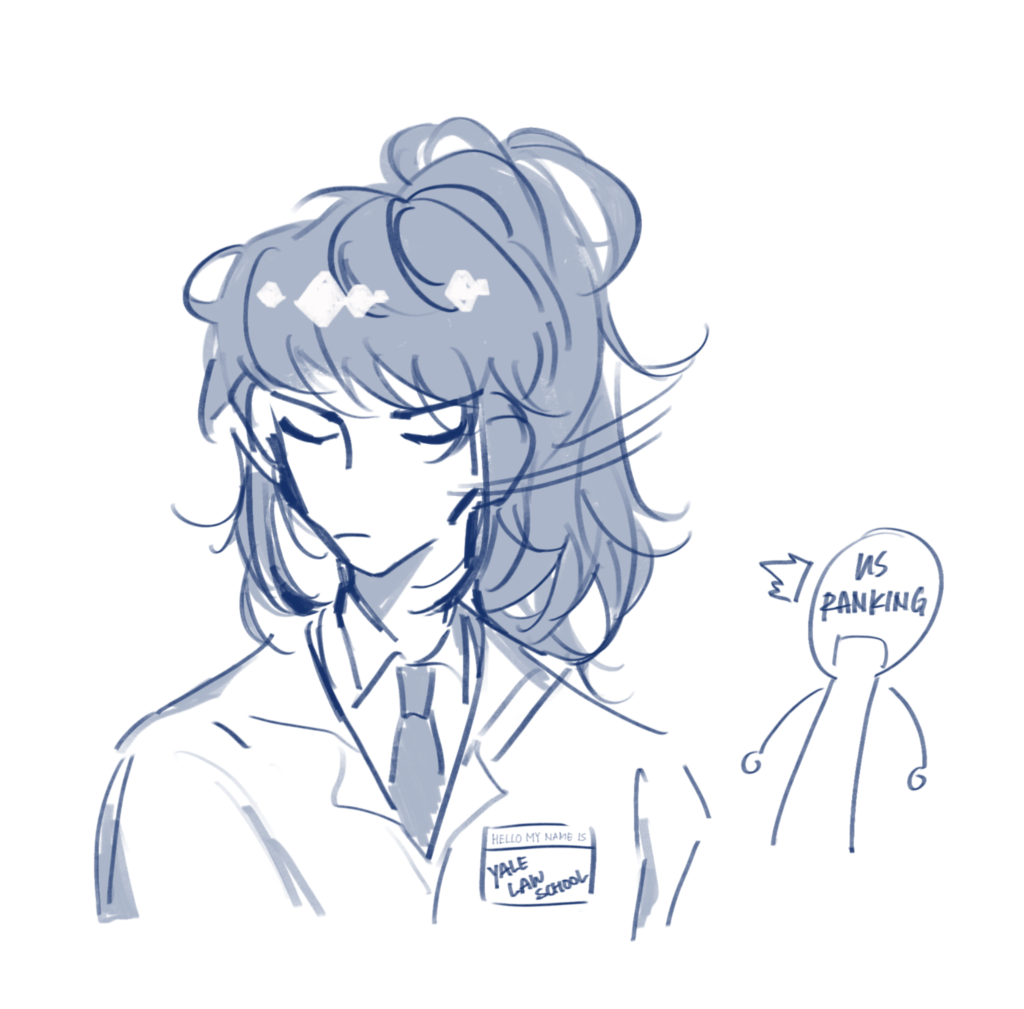Both Yale and Harvard Law School, originally ranked No. 1 and No. 4 respectively on U.S. News’s graduate school ranking, announced in November that they would withdraw from the U.S. News ranking system; in practice, this means they will no longer provide the necessary information for the publication to rank them.
Though the graduate law schools have departed from the ranking system due to assertions that the ranking system didn’t align with their core principles, the universities as a whole announced they would continue to stay in the ranking system for undergraduate rankings. Several other schools, such as UC Berkeley and UC Davis’s Law Schools, have followed suit.
Prestigious schools taking a stand against the ranking system speaks to the flaws that have riddled the ranking system for decades. The U.S. News ranking should not be the determining factor for what school students choose to go to. Harvard and Yale are held with utmost prestige, but people are more attracted to their history and legacy than their quality of education. Although elite private schools do offer high quality education, other schools such as public state schools can provide similar, if not better quality education, at a much more affordable cost.
In response to the law schools withdrawing, U.S. News announced that it would continue to rank schools to “ensure that law schools are held accountable for the education they provide.” They are able to rank even if the schools do not specifically provide them with information because most of the data is available on the school websites.
Many students and parents depend on U.S. News rankings as well as other sites such as Niche to gauge which schools are considered “better” and more prestigious. The standards used to determine a college’s ranking are heavily based on graduation and retention rates (amounting up to 20%) rather than how a student will do after they graduate, which doesn’t appear on the ranking at all. Despite the flawed way U.S. News ranks its colleges, these lists are still widely popular among applying students and parents mostly due to “bragging rights and doors for open opportunities” that come with getting into higher ranked schools like the Ivies.
Since the Ivy League schools are highly ranked, the admission numbers only increase. Yale had a record applicant pool of 50,015 in 2022, a 38% increase from 2021. However, it is debatable whether the Ivy League education lives up to its name. Even though the Ivy League education is renowned, the perception of them as superior is not always accurate. The ranking list has miscalculated a school’s educational merits before. Columbia University was found supplying false information in 2022 and re-evaluated. Consequently, Columbia Law school’s rank dropped from No. 2 to No. 18. It is highly possible that many schools supply exaggerated or outdated data; Columbia just happened to be caught.
The likelihood of skewed rankings can make it difficult for students applying to schools to know whether an education at a prestigious school is right for them. It should be more important to consider the actual education a school provides, rather than just the brand name.
But since U.S. News plans to keep ranking the law schools, the withdrawals of Yale and Harvard Law Schools have little impact on students aside from calling to attention the discredibility of the ranking system. The continual ranking will still have students focus more on how highly ranked a school is, rather than considering if the school could be a good fit to them in terms of education, people and programs.
In the hyper-competitive environment, it seems students will do anything to attend highly ranked schools rather than dig for their true value or if the college might be a good fit for them.


























